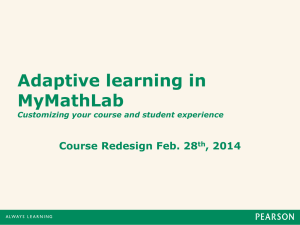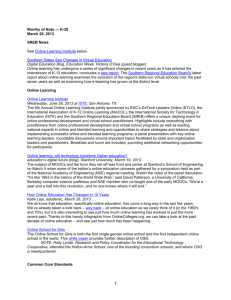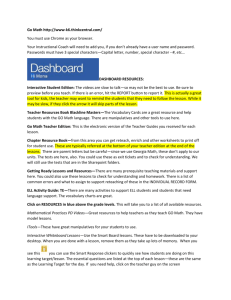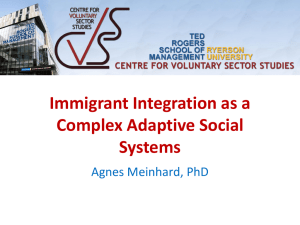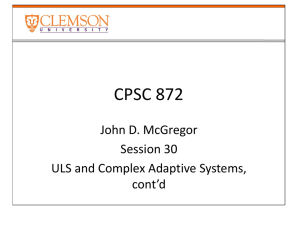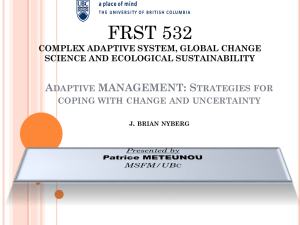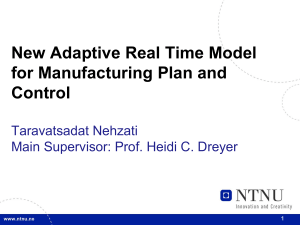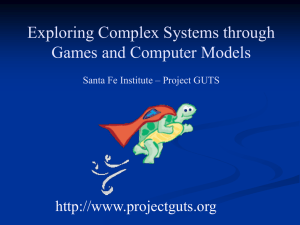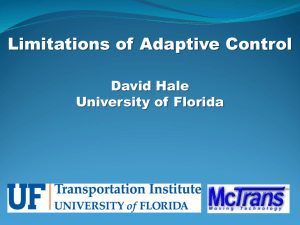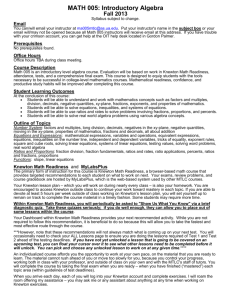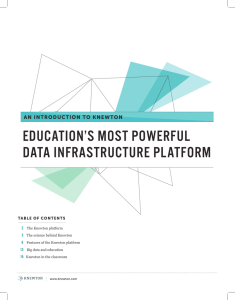Knewton SITE Proposal Outline Ken Goldstein Knewton USA ken
advertisement
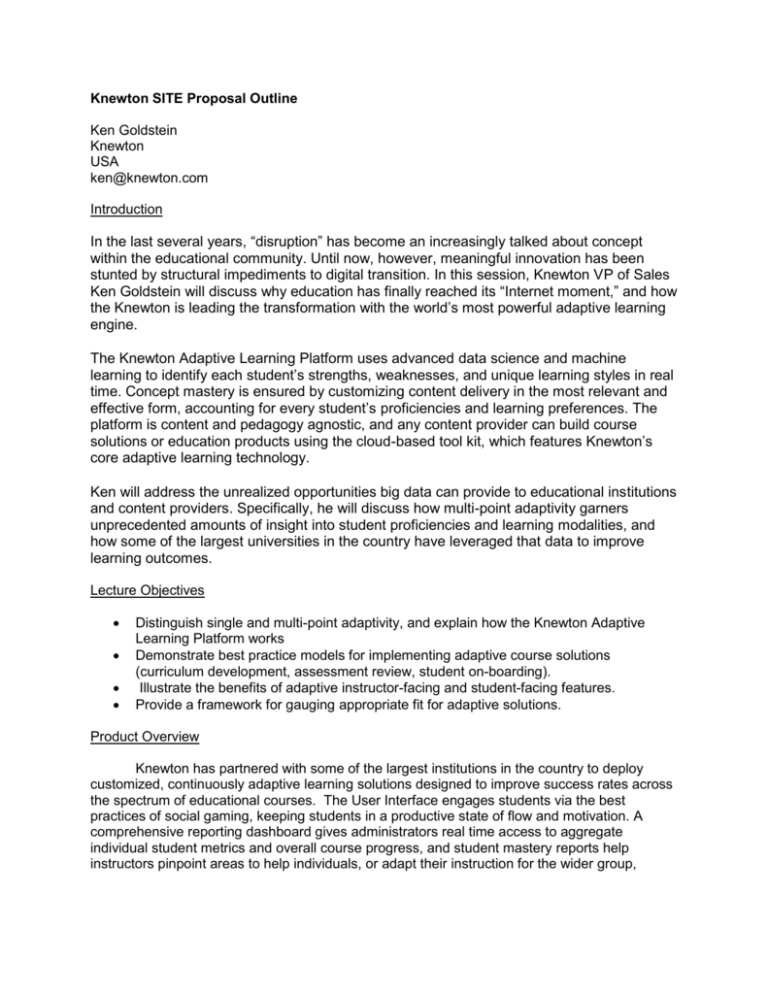
Knewton SITE Proposal Outline Ken Goldstein Knewton USA ken@knewton.com Introduction In the last several years, “disruption” has become an increasingly talked about concept within the educational community. Until now, however, meaningful innovation has been stunted by structural impediments to digital transition. In this session, Knewton VP of Sales Ken Goldstein will discuss why education has finally reached its “Internet moment,” and how the Knewton is leading the transformation with the world’s most powerful adaptive learning engine. The Knewton Adaptive Learning Platform uses advanced data science and machine learning to identify each student’s strengths, weaknesses, and unique learning styles in real time. Concept mastery is ensured by customizing content delivery in the most relevant and effective form, accounting for every student’s proficiencies and learning preferences. The platform is content and pedagogy agnostic, and any content provider can build course solutions or education products using the cloud-based tool kit, which features Knewton’s core adaptive learning technology. Ken will address the unrealized opportunities big data can provide to educational institutions and content providers. Specifically, he will discuss how multi-point adaptivity garners unprecedented amounts of insight into student proficiencies and learning modalities, and how some of the largest universities in the country have leveraged that data to improve learning outcomes. Lecture Objectives Distinguish single and multi-point adaptivity, and explain how the Knewton Adaptive Learning Platform works Demonstrate best practice models for implementing adaptive course solutions (curriculum development, assessment review, student on-boarding). Illustrate the benefits of adaptive instructor-facing and student-facing features. Provide a framework for gauging appropriate fit for adaptive solutions. Product Overview Knewton has partnered with some of the largest institutions in the country to deploy customized, continuously adaptive learning solutions designed to improve success rates across the spectrum of educational courses. The User Interface engages students via the best practices of social gaming, keeping students in a productive state of flow and motivation. A comprehensive reporting dashboard gives administrators real time access to aggregate individual student metrics and overall course progress, and student mastery reports help instructors pinpoint areas to help individuals, or adapt their instruction for the wider group, optimizing class time. The result is uniquely personalized learning for every student through continuous adaptivity. Best Practices Model Employed Take-Aways How to use data to create the most robust student learning experience possible How to fully leverage the assessment/reporting functions of adaptive instructional programs How to properly navigate the implementation process
